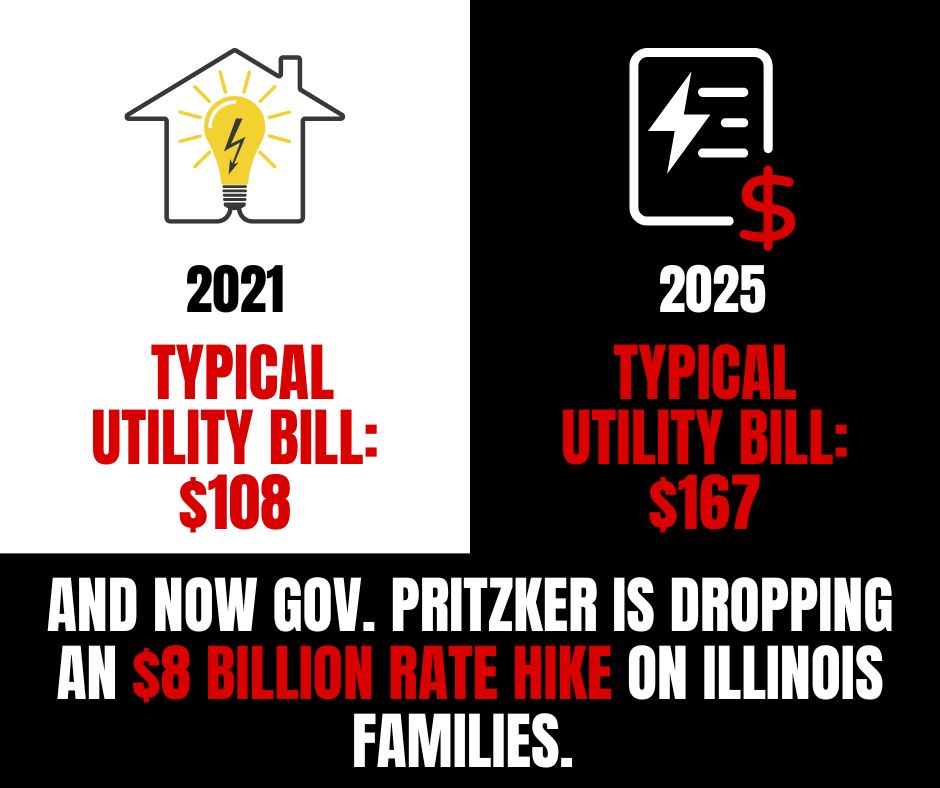Controversial Transit Legislation Passes General Assembly
After two years of public hearings and multiple proposals for funding streams, Springfield Democrats rammed through a sweeping public transit bill in the early hours of October 31. Senate Bill 2111, a controversial proposal to address Chicago’s failing transit system, was called at 4:00 AM on October 31, sparking criticism over both the timing and the substance of the proposal.
When conversations began two years ago about reforming our public transit system, I said the reforms must include a reorganized governance structure that was fair and equitable, and gave the collar counties an equal voice in transit decisions. I never wavered on the importance of this priority, because I did not want the collar counties to be steamrolled by decisions made by leaders from Cook County and City of Chicago.
As the Minority Spokesperson for the Senate Transportation Committee, I was the Senate Republican’s chief debater on the bill when it came to the Senate floor. I did not hold back when expressing my opposition to what amounts to a Chicago/Cook County takeover of our state’s public transit system.
Funding to stabilize and improve the transit system will come from a variety places, with suburban residents carrying the lion’s share of new costs. Those who use Illinois’ tollway system will see a 45-cent increase in every toll paid. Even worse, the new toll structure will be tied to the CPI, which means automatic yearly increases are built into the model. It is important to note that according to Illinois Tollway data on usership, only 8% of toll payers live in the City of Chicago. There are no toll booths within the city limits of Chicago, and the overwhelming majority of Chicago residents do not travel outside of the city by car for work or leisure activities.
The proposal also redirects critical road funding away from downstate Illinois communities and channels it toward Cook County and Chicago. As I feared throughout the negotiation process, the final bill became a bailout for Chicago Mayor Brandon Johnson and his failing transit system.
Unfortunately, the revised governance structure places control of all future transit decisions in the hands of Chicago Democrats. The new Northern Illinois Transit Authority (NITA) board will be comprised of 20 individuals, with five appointed by Governor Pritzker, five appointed by Chicago Mayor Johnson, five appointed by Cook County Board Chair Toni Preckwinkle, and just one appointment from each of the five other counties in the regional transportation system (DuPage, Kane, Lake, McHenry, and Will). It is also worth noting that all but one of the collar county board chairs who are responsible for making their county’s appointment are Democrats, so we are looking at a 20-member NITA board that includes 19 Democrats and only one Republican. It’s hardly a foundation for an equal exchange of ideas.
The legislature had an opportunity to reform Metra, Pace and the Chicago Transit Authority (CTA) in a manner that provided equity in board membership and voting, but in the end, control and power was placed in the hands of Cook County and Chicago, which both have abysmal track records for fiscal responsibility.
Democrats Pass Controversial Energy Legislation

One of the most costly bills passed the last day of veto session was an energy bill that removes current caps on how much energy rates can be increased. This opens the door to an $8 billion hike on power bills. Every Senate Republican voted against Senate Bill 25.
I believe the provisions of the bill will drive up costs for families already struggling with high utility bills, while directing billions toward special-interest projects and unproven technology that will not make energy more affordable or reliable. The measure also strips away local control, allowing large battery storage facilities to be built within 150 feet of a home or farm with no recourse for local governments to object.
Families across Illinois are already being crushed by rising costs, and instead of offering real relief, this proposal makes things worse. By removing these protections and giving unelected agencies unlimited power to raise rates, the legislation will make energy more expensive and less reliable for Illinois families.
Springfield Democrats Push New Tax Hike Disguised as “Decoupling”

Democrats also passed a controversial proposal (Senate Bill 1911) to “decouple” Illinois from federal tax relief measures recently put in place. The provisions Democrats rejected are designed to help businesses recover and grow. By decoupling, Democrats are effectively raising taxes on businesses, manufacturers, and other job creators. It is yet another short-sighted tax grab that threatens jobs, investment, and working families across the state.
Currently, Illinois faces one of the highest unemployment rates in the nation, and I believe this new tax hike would only make matters worse. Every other state competing for factories, jobs, and new facilities is offering incentives to build, but decoupling sends a clear message that Illinois is closed for business.
Governor Pritzker and his allies are prioritizing short-term revenue over long-term economic stability, and I believe that instead of creating jobs and helping families get ahead, Democrats are choosing yet another tax hike that raises costs, drives away opportunity, and makes it even harder for Illinois families to succeed.

